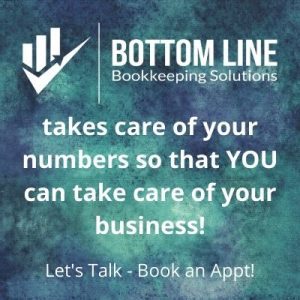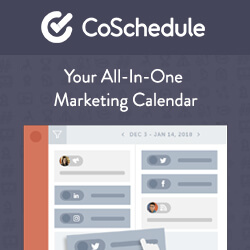Suppose you're having guests over for coffee. You discover beforehand that their favorite dessert is double chocolate chip brownies, and that they also have a peanut allergy.
What luck! You make the best double chocolate chip brownies on the planet, so you proceed to whip up your famous recipe from scratch, carefully remembering to omit the nuts. You also pick up some coffee from a local roaster.
As your guests arrives, they are greeted with the intoxicating aroma of freshly-baked brownies.
They sit down at the coffee table you've graciously prepared for them, and you serve them the freshly-brewed, local coffee.
They love it!
AND they love YOU.
The conversation is grand and inspiring, as you show genuine interest in what's up in your guests' world.
You tell them all about the fabulous brownies you baked just for them, all the fresh and organic ingredients you used, and the care you took to make sure they contained no nuts.
When they ask whether you'd made them for others in the past, you humbly answer yes, and how you had to keep all the windows and doors shut tight in the house with this batch for fear the whole neighborhood who come 'round expecting to eat up all the brownies!
You pour them another cup of coffee.
Suddenly, you start doubting yourself.
Are they just acting like they like double chocolate chip brownies, and they really don't?
What if they don't like MY brownies I made just for them?
When they leave, will they tell their friends how I went on-and-on about my brownies and twisted their arm to get them to eat them?
Time's up. Your guests have to leave.
Knot in your stomach, you don't even offer your guests the brownies you prepared specially for them.
Why?
You're afraid of what they might think.
Sound ridiculous?
Yet, it's a challenge faced by entrepreneurs and sales professionals all the time, and it occurs when we are focused on ourselves and the imaginary conversations in our heads, rather than on serving others.
Could it be that selling is actually serving our ideal prospects and clients — what I call a Spiritual Practice — and we've got it all turned around?
Coach Molly Gordon of AuthenticPromotion.com wrote an article about how she experienced a similar disconnect between selling and serving when it came time for her to make an offer. She describes how she was having a blast giving tons of valuable content to a group of her “just-right” prospects gathered to listen and view her no-charge webinar.
Molly writes, “So long as I was in giving mode, it went fine,” but when it came time for her to invite them to take the next step with her for a fee, she admits “I was so preoccupied with what people would think that I lost touch with what would best serve them.”
Does this experience sound familiar to you?
For some reason, many (most?) of us operate from the assumption that once we ask for the sale we go from giving to taking.
If that was all there was to it, that might be OK. But, notice that Molly recognized that when she was in “giving mode,” everything went well, but when it was time to transition to the selling conversation, “I fumbled the invitation.”
At least in this moment, it was the judgment piece that got Molly into trouble. She judged giving as good and taking as bad.
And, who wants to look bad in front of prospective clients?
Another unproductive conversation-in-our-heads that can stop us in our tracks when it comes to selling is has to do with the Myth of the Used Car Salesman in the Popular Imagination.
It's the image of the sleazy swindler, trying to take you for all you've got. He's pushy, manipulative, and is only concerned with one thing, and that's to ensure he sells you no matter what. It doesn't matter that you don't even want what he's selling.
How spiritual or magnetic or attractive is that?
No wonder people in business for themselves who are ethical and heart-centered are uncomfortable with selling, and certainly do not want to refer to themselves as a salesperson.
As I've said, I call this the Used Car Salesman Myth.
Is the image true?
Well, myths are considered true or false depending on whose belief system we're talking about. For example, we are familiar with the Greek Myths, as in the trials and triumphs of Zeus, Aphrodite, Odysseus, and the rest.
In modern times, some might refer to the Great Deluge in the Days of Noah as a myth.
For our purposes, however, the truth value of the myth is not the point, or even that important.
What is important is that we act as if it were.
So it is with the Myth of the Used Car Salesman.
We struggle with sales and selling because thoughts and feelings about the matter are incongruent.
You know intellectually that not (or even most) used car sales people are sleazy and unscrupulous, but unconsciously it's your prevailing story nevertheless.
This means you either act like the Mythical Used Car Salesman acts (How many times have you caught yourself saying or doing something your parents said or did that you vowed you'd never repeat?!) or shy away from effectively and consistently selling your goods or services for fear of coming across like aggressive, pushy or sleazy.
So, how do we break the chain, embrace selling as spiritual practice, and opening share our products and services with those we are meant to serve?
Well, the first thing is to honor your natural love of giving by realizing that giving and receiving are two sides of the same coin. You then begin to recognize that the selling conversation — properly executed out of right intention (just like the brownies you made especially for those specific guests) — IS giving.
In other words, making an offer after sharing great free content is simply an extension of the giving you've been doing all along.
As for the Used Car Salesman Myth, oftentimes knowledge alone is curative.
Even though I believe there is a big global shift going on right now with heart-centered entrepreneurs like you at the helm changing the face of business so that it's all about spirituality, love, and right intention, we still live in a society where the backdrop paradigm is the Used Car Salesman Myth.
When in stress where we feel we *need* to make the sale, it takes deliberate consciousness to operate in accord with a Spiritual Model for Selling rather than UNconsciously falling back on what we know.
This Spiritual Model is the focus of the upcoming Selling With Spirit 5-Week Intensive I invite you to join.
In this supportive environment, you will …..
- adopt ease and flow as your new paradigm for selling
- embrace your value and be able to clearly articulate what you do and who you serve
- learn actionable strategies to ignite your business month of December and into the New Year
- And, of course, much more, including personal attention and coaching from me & your colleagues.
You weren't made to hide in the shadows. The world needs you to stand up and stand out to lovingly allow people to express their appreciation for your gifts through monetary exchange.
Click here to invest in this powerful program.
I've a special gift just for you readers and community members here on Michele Scism's Decisive Minds blog. Enter discount code “Decisive” (without quotation marks) when you check out, and you will receive a $100 scholarship on the already affordable investment.
The third thing I want to share with you to help you break free from what's keeping you from your ideal clients is to remember to always give people the chance to say “Yes” to your offer.
Just like in the cookie scenario, when we let our mind drive the bus, we sometimes decide that people won't say “yes” to our offer, so we shrink back and don't even give them the chance. It comes from a deep-seated misunderstanding of the word “No.”
Most people equate “No” with rejection, and so would rather not risk it.
If you made my favorite double chocolate chip brownies (This is hypothetical, by the way. Double chocolate chip brownies are not my favorite!) and then offered me some (with locally-roasted coffee, of course), but I said “Oh, no thank you,” does that mean I rejected you?
No. Absolutely not.
It just means (for the time being, at least) I don't want any brownies.
You know your products and services are perfect for your “just-right clients,” don't you?
You know they will help transform and support their lives, their businesses, their relationships, don't you?
Then, stop standing on the sidelines of your life, imagining what people are thinking of you.
Wake up!
Choose a new, empowering sales story for yourself, and get out there and sell your fabulous brownies!
(flickr image license: Some rights reserved by Matt McGee)
Tshombe Brown is a Spiritual Business & Sales Success Coach who helps solo entrepreneurs and independent sales professionals release themselves from struggle, differentiate themselves in the marketplace, and to easily attract only their perfect clients.
You can find him online at TheMagneticEntrepreneur.com.
If you're ready to create an empowering relationship to selling, attract more clients and make a bigger impact, Enter Discount Code “Decisive” when you register for the SellingWithSpirit.com 5-Week Intensive to receive your $100 scholarship.





